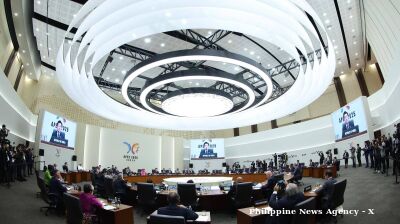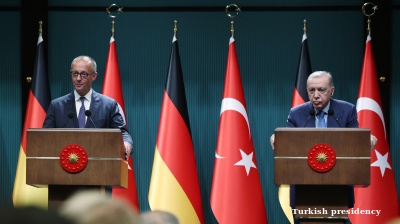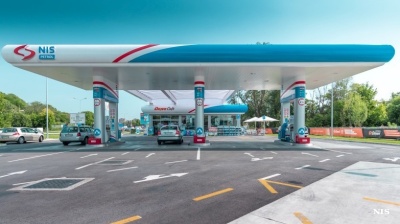Iran has remained ahead of Saudi Arabia as the country with the world's cheapest gasoline, with prices at IRR15,000 per litre ($0.018), according to data from Global Petrol Prices released on May 8.
Despite holding the global title of cheapest country for petroleum products, Iran’s government faces a massively devalued rial and stretched finances with the potential for further riots if it attempts to increase the per-litre petrol price in the country, with authorities mindful of previous riots when it last attempted the push the price up.
The latest figures show Iran's government-subsidised fuel costs less than one-third of Saudi Arabia's price of $0.62 per litre, which remains the lowest among G20 nations.
Russia holds second place among G20 countries with petrol priced at approximately 60 roubles per litre ($0.75), according to data from national statistical services cited by RIA Novosti.
"Iran's heavily subsidised fuel pricing structure has consistently kept consumer costs artificially low despite significant economic challenges and international sanctions," a business expert in Tehran said to IntelliNews on May 8, following the G20 release.
Indonesia follows Russia in the G20 rankings with petrol at $0.80, while the United States, Brazil and Argentina range between $0.87-$1.12.
Seven G20 nations including China, Canada, Australia, South Korea, Japan, India and Turkey have petrol prices between $1.12-$1.25, the data revealed.
European G20 members record the highest prices, with petrol costing $1.95 in the United Kingdom, $1.99 in Germany, $2.05 in Italy and $2.06 in France.
Too good to be true
Earlier, Iranian President Masoud Pezeshkian recently addressed the country's fuel subsidy policy, stating: "There is no rationality in the fact that we buy gasoline with free market dollar prices and we sell it with a subsidised price," as reported by Reuters on August 27.
Iranian MP Mohammad Mirzaei has proposed allocating fuel subsidies based on national identification numbers rather than vehicle ownership, citing concerns over inequitable distribution of benefits, Tasnim News Agency reported on May 7.
"Daily petrol consumption reached 165mn litres in the first month of the current Iranian year," Mirzaei said. "About half of Iranian households without personal vehicles receive no benefit from fuel subsidies while suffering from air pollution, whereas families with multiple vehicles benefit disproportionately."
The representative for Shahin Dej and Takab noted that Iran exported $3bn worth of petrol in 2020 but now must import over 10mn litres daily, costing approximately one dollar per litre including distribution expenses.
"My proposal is clear – instead of allocating petrol to vehicles, assign it to individuals based on their national ID numbers," Mirzaei explained. "This would allow each citizen to receive one litre of petrol daily, which is more equitable."
Earlier on May 6, Iranian Energy Commission member Malek Shariati announced that under the 2025 budget law, fuel quotas will be transferred to vehicle owners' bank accounts without changing prices or quantities, with implementation targeted for August 2025.
"Based on the 2025 budget law, petrol quotas will be transferred to vehicle owners' bank accounts without altering prices or amounts," Shariati stated. "This measure offers several advantages, including facilitating refuelling, preventing smuggling, and establishing infrastructure for future quota trading."
Shariati also highlighted plans to establish a Ministry of Energy, supported by more than 50 MPs, aimed at integrating decision-making across the energy production chain.
"Electricity, gas and oil are links in a chain currently managed separately, leading to chronic inefficiencies and disputes," he stated. "Electricity is a modern form of fossil energy that should be managed under the oil industry."
Energy investment
Oil Minister Mohsen Paknejad also announced plans to implement 30 oil projects worth $10bn by year-end, which will increase refining capacity by 180,000 barrels daily and petrochemical production by 7 million tonnes, after one ministry official previously invited American funds to invest in Iran again after nearly 50 years.
"Despite all sanctions, oil exports are at their highest level," Paknejad said during the opening ceremony of the International Oil, Gas, Refining and Petrochemical Exhibition.
"With the implementation of these projects, refining capacity will increase by 180,000 barrels and petrochemicals by 7mn tonnes daily."
The minister stressed that the oil industry must adapt to modern global technologies and stated that the ministry has taken serious steps towards the goals of the seventh development programme, including maintaining production, quality improvement, and increasing crude oil production capacity.
News

Chicken and chips in Seoul - for Nvidia, Samsung and Hyundai
In a low-key fried chicken shop in southern Seoul, the leaders of Nvidia, Samsung Electronics and Hyundai Motor held an informal meeting on the evening of October 30.

Presidents Lee and Xi begin diplomatic chapter at APEC summit
President Lee, who is chairing the first session of the summit at the Hwabaek International Convention Centre, stood at the entrance to personally welcome participants. President Xi reached the venue at approximately 10:02.

South Korea opens APEC summit focusing on connectivity and growth
South Korean President Lee Jae Myung chaired the opening session of the Asia Pacific Economic Cooperation (APEC) Leaders’ Meeting on the morning of October 31 in Gyeongju, North Gyeongsang Province.

Joint Erdogan, Merz press call in Ankara not without tensions
Turkish, German leaders address delicate issues such as Gaza and Turkey’s longstanding stated wish to join EU, but there’s no war of words.




